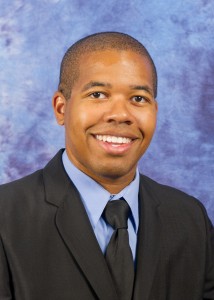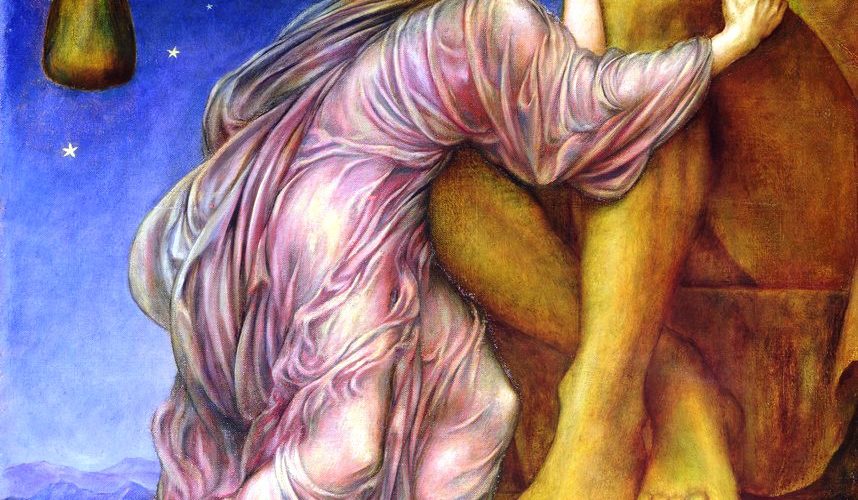By: Raney Johnson
Come wayward Souls,
Who wander through the darkness,
There is a light for the lost and the meek.
Sorrow and fear,
Are easily forgotten,
When you submit to the soil of the earth. – The Beast
The song above is from the miniseries Over the Garden Wall that I watched a few years ago.
In the cartoon, the main antagonist is a character by the name of the Beast. He is a shadowy figure with glowing eyes who stalks the forest looking for lost souls to lead astray while singing the dreary song above.
In the same way, there is a shadowy figure looking for lost souls in the Gospel reading from the 25th Sunday of Ordinary time. The figure in Luke’s Gospel is mammon. Jesus tells his disciples, “You cannot serve both God and mammon.” Mammon is wealth and more specifically the love of wealth that consumes the desires of a person.
Just as the Beast sings, mammon looks for the “lost and the meek” so that they can find consolation in material things. Mammon offers worship of itself instead of God, it is because it provides false security from “sorrow and fear.”
Those who begin to serve mammon think they no longer have to fear because their is enough money in the bank account or sorrow because they are able to buy whatever they please. Their whole world begins to center on money, what it can buy and the financial security money provides. God becomes unimportant and the spiritual life starts to give way more and more to materialism.
I sometimes find myself wandering through the darkness of life and tempted to give into the love of wealth, but I always have to remember that true healing of sorrows and fears can only come from God.
I can always look to the Apostles of Jesus as examples of serving God instead of mammon.
On the feast of St. Matthew, the Apostle and Evangelist, he does exactly what Jesus asks in the Gospel. No doubt, St. Matthew was probably serving mammon as a tax collector. Money was the center of his life, but when Jesus goes to the custom post where St. Matthew was sitting and says, “Follow me,” St. Matthew gets right up and follows Jesus.
He does not tell Jesus his job is too good so he cannot leave or that he has to settle his financial affairs. At the moment Jesus calls St. Matthew, he immediately follows Jesus and no longer serves mammon.
Jesus has asked many of the men at Notre Dame Seminary to follow him and many of those men have given up houses, cars, salaries, and many other material things. I found myself always worrying about the amount of money in my bank account before seminary and what job I could find to make the amount of money I desired after graduating from college. However, after entering seminary, financial matters became secondary to my discernment of God’s call.
The easiest way to stop serving mammon is to discern that God is always calling each and every man and woman to a vocation. St. Matthew knew that Jesus was calling him to be greater than a tax collector. Jesus wanted him to go out and preach the Gospel.
Jesus wants the same for all of his followers. He wants us to put God first in life and to know that a vocation is always more important than an occupation. Whether it be married life, religious life, single life, or the priesthood, God asks every one of us to follow him.
Instead of listening to the song of the Beast and mammon proclaiming false security from wealth, we can listen to the words of Jesus, “Come to me, all you who labor and are burdened, and I will give you rest. Take my yoke upon you and learn from me, for I am meek and humble of heart; and you will find rest for yourselves. For my yoke is easy, and my burden light” (NAB Mt. 11:28-30). These are the words Jesus uses to call us just as he called St. Matthew so many years ago. All we have to do in turn is to follow him and serve God.
About the Author: Raney Johnson

Raney Johnson is a seminarian from the Diocese of Shreveport. He is in his second year of Pre-theology at Notre Dame Seminary studying philosophy.
Disclaimer
All opinions published by the authors on this blog are solely those of the authors. Although the goal is that they should, they do not necessarily express the views and opinions of the Archdiocese of New Orleans, Notre Dame Seminary, the Church, or their respective dioceses and bishops.
Notre Dame Seminary and the Archdiocese of New Orleans are not responsible for the comments of commenters, although every effort will be made to remove offensive comments.
If you should find an error or offensive content, please email the NDS Blog editorial team.

